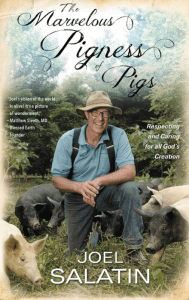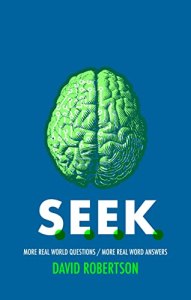SEEK 5 – Factory Farming
Question: Does factory farming of animals make God angry?
Bible Reading: Exodus 20:1-17
Text: “…but the seventh day is a sabbath to the Lord your God. On it you shall not do any work, neither you, nor your son or daughter, nor your male or female servant, nor your animals, nor any foreigner residing in your towns.” (Exodus 20:10
Have you seen the film Amazing Grace? If not, I would highly recommend you hunt it down. It is one of my favourite films ever. It portrays the life of William Wilberforce who, as everyone knows, helped end slavery in the British Empire. What many people do not know is that he was also a founding member of the RSPCA (the Royal Society for the Prevention of Cruelty to Animals) on 16th June 1824. For Wilberforce it was an important part of his Christianity that he cared for animals – and it should be for ours. In ASK 20 we considered about whether animals go to heaven, now we ask how we should treat them on earth!
There are some who think this subject is not important. I think it is essential. For two reasons – firstly animals are an essential part of our lives – not least because of the food they provide to keep us alive. And secondly because God says so. Here are just a few of the many Bible passages that address the issue.
Proverbs 12:10 “The righteous care for the needs of their animals, but the kindest acts of the wicked are cruel.
Deuteronomy 25:4 “Do not muzzle an ox while it is treading out the grain”
Matthew 6:26: “Look at the birds of the air; they do not sow or reap or store away in barns, and yet your heavenly Father feeds them”
Ps 104:14 “He makes grass grow for the cattle,and plants for people to cultivate— bringing forth food from the earth:”
 I grew up on a farm. My father looked after pigs and my mother chickens! So, I was delighted to discover Joel Salatin’s book ‘, a book written about this very subject for Christians. Joel observes “Jesus clearly said it was okay to relieve a distressed animal on the Sabbath, even though the Sabbath was a day of rest. Indeed, Adam’s directive to name the animals shows that God was not interested in just a bunch of ‘its.’ God feeds the ravens—an especially nasty bird—and knows even when a sparrow falls.”
I grew up on a farm. My father looked after pigs and my mother chickens! So, I was delighted to discover Joel Salatin’s book ‘, a book written about this very subject for Christians. Joel observes “Jesus clearly said it was okay to relieve a distressed animal on the Sabbath, even though the Sabbath was a day of rest. Indeed, Adam’s directive to name the animals shows that God was not interested in just a bunch of ‘its.’ God feeds the ravens—an especially nasty bird—and knows even when a sparrow falls.”
As regards the question of factory farming Joel gives a graphic description of industrial ‘battery’ chicken farming. Here is part of that description. “Prior to industrialization, the average backyard hen weighed about six pounds and laid 150 to 170 eggs per year. Today’s commercial bird weighs as little as three pounds and lays three hundred eggs in a year. Unlike her old-fashioned cousin, however, this newfangled industrial bird has some real needs. First, she’s extremely fragile. She can’t handle rainstorms or frosty nights. Second, she requires exceptionally sophisticated nutrients. If she exercised or ran around, she wouldn’t be able to put all her energy into simply laying eggs. Therefore, her activity must be restricted in tiny cages inside CAFOs. To ensure maximum production in as short a time as possible, these buildings use lights in a tightly regulated regimen to simulate ever-increasing day length.”
My mother kept a few chickens at her home in the Highland village of Portmahomack. She took worn out ‘industrial’ chickens, set them free and fed them on scraps. Within weeks they were producing delicious eggs. The difference between them and the supermarket ones – yes even the so called ‘free range’ ones – was so astonishing that people travelled from all over to get them. Their shells were stronger, their yolks a deeper yellow, and the taste was so much better. ‘Granny Chickens’ is loved by all her grandchildren – not least because of her care for her animals. As was ‘Grandpa Lambs’!
I love my vegetarian friends, and if you are a vegetarian may the Lord richly bless you in your choice, but the Bible does not insist that we have to be vegetarian. It is not wrong to eat meat. However – how that meat is produced, and how we treat the animals who give us wool, milk, leather and eggs, does matter. It is wrong to mistreat animals. I cannot see any way in which factory farming of animals is anything but sin – and sin does make God angry. So, the answer to your question is yes.
Consider: Do you think about where your food comes from? Would you be prepared to pay a little more money if the animals were treated better? Maybe it’s time to think more about how we produce food, how we buy it and how we cook it!
Further Reading:
The Marvellous Pigness of Pigs: Respecting and Caring for All God’s Creation – Joel Salatin
Prayer: Father God, you give us all things richly to enjoy. Not exploit. Forgive us when we misuse and abuse your gifts. Thank you for your care for the sparrow and for your feeding the lions. Enable us to appreciate the variety in your creation and to be good stewards of it. May we be like our Father in heaven. For your glory – Amen.
 You can buy SEEK from any good bookshop or Amazon…
You can buy SEEK from any good bookshop or Amazon…
Or at Koorong
Letter from Australia 112 – Going Home
Quantum 264 – It’s a Long Way to the Top


Interesting! With one life, and limitless agendas to prioritise, it’s a tough one. Hard to go entirely vegan or vegetarian after decades of mixed diet? People, who live long and thrive, often seem to eat less and stay slim. Many seem to take less food generally, and not a great deal of meat from what I see.
So is it ok to cause an animal a painful death as long as we then eat them?